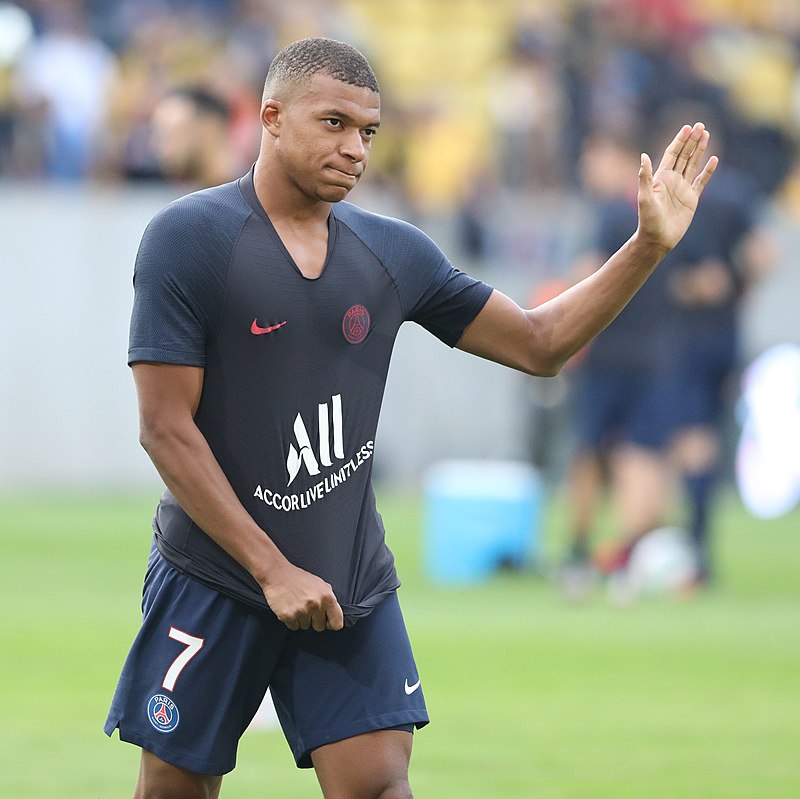Mbappe 2025: What his new PSG contract means for Financial Fair Play
On Saturday, Kylian Mbappé snubbed Real Madrid and decided to negotiate a new contract with Paris Saint-Germain, agreeing to a lucrative three-year deal to keep him at the club until 2025. Sky reported that the Frenchman is rumoured to receive a salary of £1m per week with a signing-on fee in the region of £100m. The deal could be worth far more than that, given sponsorships and performance-related bonuses.
If the astonishing monetary terms of the contract were not shocking enough, PSG have given Mbappé a more decisive voice in the running of the club. There are reports that the 23-year-old will have a say in the decision to appoint a sporting director and a manager, with Mauricio Pochettino expected to leave in the summer. Such a deal is unique and potentially dangerous for the club, given the forward will potentially have an impact on signings and outgoings.
Mbappé was presented at the Parc des Princes at PSG’s final game of the season, holding a shirt with ‘2025’ written on the back to represent his three-year deal. He managed to score a hat-trick at home against Metz to sign off for the summer in front of an adoring crowd.
Spain’s La Liga, who have denounced the deal as ‘scandalous’, said that it “attacks the economic sustainability of European football, putting at risk hundreds of thousands of jobs and sporting integrity”. This does seem rather ironic, given the spending and financial mismanagement of elite Spanish clubs.
The world of football would do well to remember that the sport began as a working man’s game
Despite being in debt of over £770m, Real Madrid were interested in signing Mbappé. Los Blancos had been embroiled in the transfer saga and reportedly were prepared to pay £230m for the Frenchman’s signature with a verbal agreement already in place. The Spanish champions had offered a signing-on fee of £110m and a salary of around £20m per year.
Fabrizio Romano reported that Mbappé informed Real Madrid president Florentino Pérez on Saturday afternoon that he would be declining their proposed deal, choosing to negotiate a new contract in the French capital. Mbappé was a Real Madrid fan from a young age, with posters of Cristiano Ronaldo covering the walls in his childhood bedroom. The decision for the Frenchman cannot have been easy.
La Liga threatening legal action might at first appear petulant, but if we look beyond the apparent hypocrisy of the elite Spanish clubs, might elucidating the blatant abuse of financial power in football be beneficial for the future of the sport?
The world of football would do well to remember that the sport began as a working man’s game.
State-owned football clubs like PSG and Manchester City are able to spend extortionate amounts with a blatant disregard for the seemingly weak FFP regulations and the consequences for breaking them. This continued monopolisation of football, proliferated by greed off the pitch, has diluted the essence of the game.
Mike Ashley’s purchase of Newcastle United in 2007 was an early warning for English football. His decision to rename the iconic and original name of Newcastle’s stadium St. James’ Park to the Sports Direct Arena was an early example of a brazen neglect for the fans. 14 years on, and with the sale of the club to the state-owned Saudi Public Investment Fund, football has not learned its lesson.
La Liga president Javier Tebas said Mbappé’s contract “is as dangerous as the Super League”. The proposed breakaway league of 12 European clubs was met with backlash from fans across the world of football last April and plans broke down.
Football has been reduced from a game played by 22 people on a pitch to a set of undisguised trade deals, which can control sporting fortune
Mbappé’s contract is just another example of how financial power in football now has a more commanding influence over the sport than ever before. FFP regulations were brought in by UEFA in 2009 to help keep clubs financially afloat, with 20% of clubs surveyed considered to be economically vulnerable. However, a greater threat to the game might now be the fact that clubs with the greatest financial strength will be able to dictate the future of the sport.
Football has been reduced from a game played by 22 people on a pitch to a set of undisguised trade deals, which can control sporting fortune. Supporters might find solace in clubs below the major European leagues where – at least, for now – the original and unfiltered sporting passion for the beautiful game remains relatively untarnished by the disease of frivolous spending.
The terms of both Mbappé’s new deal and Real Madrid’s unsuccessful offer show not just the astounding financial power of elite clubs, but expose their seemingly uncaring attitude in monopolising the essence of football.

Comments